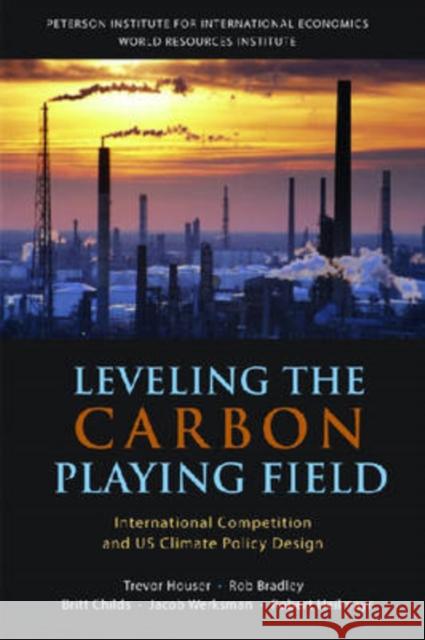Leveling the Carbon Playing Field: International Competition and US Climate Policy Design » książka
Leveling the Carbon Playing Field: International Competition and US Climate Policy Design
ISBN-13: 9780881324204 / Angielski / Miękka / 2008 / 112 str.
As political momentum surrounding climate change builds in the US, policymakers are taking a fresh look at national climate policy and American involvement in multilateral climate negotiations. And as in years past, the potential economic impact of any US effort to reduce greenhouse gas emissions stands as a central question in the Washington policy debate. Of particular concern is the effect climate policy would have on carbon-intensive US manufacturing. Many of these industries are already under pressure from foreign competition, particularly large emerging economies like China, India, and Brazil that are not bound to reduce emissions under the current international climate framework. As the Congress takes up domestic climate legislation and the Administration reengages in multilateral climate negotiations, policymakers are looking for ways to avoid putting US industry at a competitive disadvantage vis-a-vis countries without similar climate policy, lest a decline in industrial emissions at home is simply replaced by increases in emissions abroad. While this would be best achieved through harmonized international climate policy, the differences between countries in level of economic development, obligations stemming from historic emissions and responsibilities arising from future emissions, mean harmonization is still a long way off. The question then, in the design of domestic US climate policy today, is how to level the playing field for carbon-intensive industries during a period of transition, where trading partners are moving at different speeds and adopting a variety of policies to reduce emissions...and how to do so in a way that doesn't threaten the prospects of broader international agreement down the road. This book, a collaboration between the Peterson Institute for International Economics and the World Resources Institute, tackles these issues through an assessment of the economics and trade flows of key carbon-intensive industries. They evaluate a wide range of policy options, including those that would impose carbon costs on foreign-produced goods at the border (currently included in draft US legislation and under consideration in the EU) in terms of their effectiveness in reducing emissions and addressing competitiveness issues and their impact on health of multilateral trade and climate negotiations.











